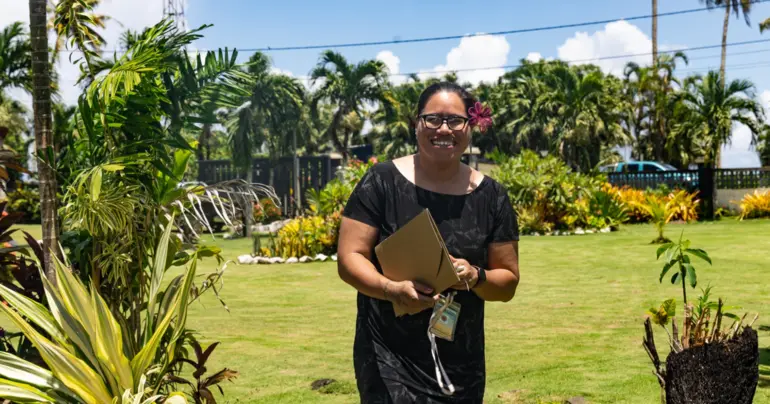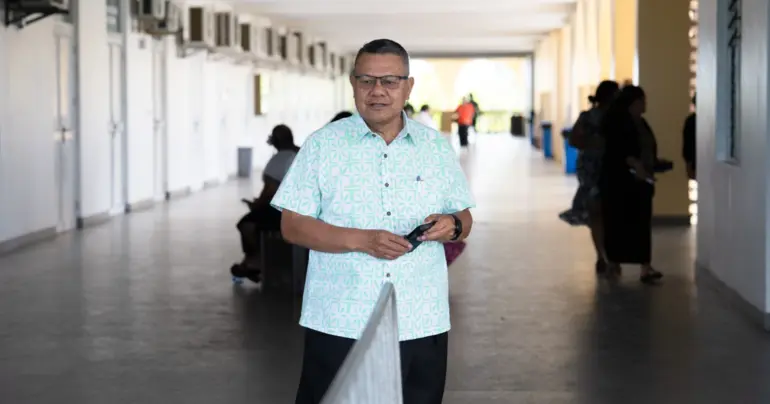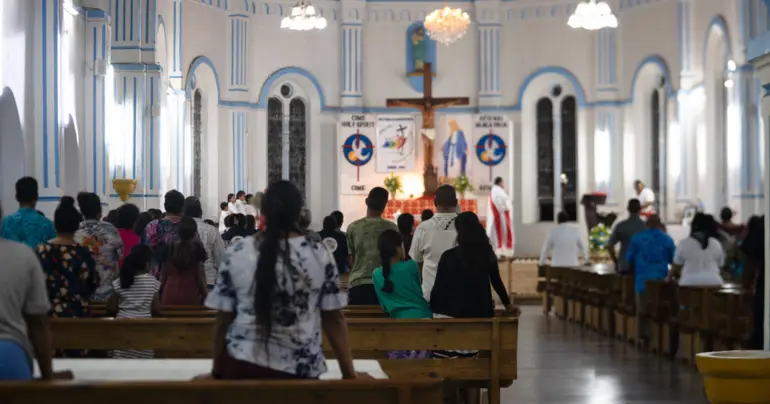Pacific would gain from big tech payouts
 By Sapeer Mayron
•
23 February 2021, 3:00PM
By Sapeer Mayron
•
23 February 2021, 3:00PM
The Pacific regional news agency PACNEWS believes social media and technology giants should be paying local media for their news.
In an interview with Radio New Zealand’s Dateline Pacific, editor Makereta Komai said for small and struggling news producers in the region, that money would go a long way.
Australia, seeking to get a pay cheque from Facebook and Google for their part in the news business, is looking to pass legislation that would force it and other platforms to pay for local news content that goes on their sites.
The move has been controversial but Ms. Komai gave it an enthusiastic thumbs up.
“It’s a great initiative if it does happen,” she said.
“If that can be done where companies like Facebook, Google, other social media platforms, if they are interested in content from the Pacific, if they can pay for that content and help publish a lot of the content from the Pacific, I think that could be something we could also explore, or that the big tech companies should also explore and think of the content providers and support us.
“At the end of the day we all need revenue to keep our organisations afloat.”
Last week, Facebook went ahead and blocked Australian news content from its website, and blocked Australian users from sharing news content, choosing to opt-out of paying for it by not publishing it.
Facebook’s vice president of global news partnerships Campbell Brown said Australia’s proposed legislation doesn’t understand “the fundamental nature of the relationship between our platform and publishers.
“Contrary to what some have suggested, Facebook does not steal news content. Publishers choose to share their stories on Facebook.”
Ms. Komai said for many internet users in the Pacific, Facebook is the primary source of news, partly because their families in the diaspora also use it to share news from abroad and partly because Facebook is cheaper to surf than an internet browser.
“Most of the telcos in the Pacific ensure that they have Facebook and other social media platforms in their packages to encourage their users to buy their packages,” she said.
“For us here in the Pacific the biggest impact would be accessing Australian content on Facebook that a lot of people in the Pacific rely on to get their information and their news.”
She said the region will miss out on content from the major Australian outlets that are able to investigate and report on issues that Pacific journalists are sometimes not able to.
“The media landscape in the Pacific, and particularly for countries like Fiji where the media legislation does not allow or does not encourage investigative reporting, we rely on content written by a journalist outside Fiji that can investigate and write about these issues and share it back with us in Fiji,” Ms. Komai said.
“That is what we are going to lose out, particularly the media in the Pacific that rely on these types of reporting from Australia and New Zealand sources.
“We are relying on our own local news but the stories that come out of Australia and New Zealand, they are relevant to us in the Pacific.”
Meanwhile in Australia, the Government is pushing ahead with its attempts to regulate the unregulated despite Facebook’s news ban accidently capturing some public service pages too.
The Guardian reports while a new code of practice has been adopted by Facebook and others, Australia will take action if misinformation and disinformation continues to spread on these large platforms.
Under this code, which was developed by the industry organisation Digi, the platforms have to develop processes to identify and remove misinformation (incorrect information) and disinformation (misinformation deliberately designed to deceive) on their sites.
They will also have to report annually on their work to meet this code with the first reports due in May this year.
Australian Minister for Communications Paul Fletcher said the Government is watching how the platforms engage with the code of practice.
“The Morrison government will be watching carefully to see whether this voluntary code is effective in providing safeguards against the serious harms that arise from the spread of disinformation and misinformation on digital platforms,” he said.
“I look forward to receiving A.C.M.A.’s [the Australian Communication and Media Authority’s] feedback, which will guide us on whether further action is needed.”
 By Sapeer Mayron
•
23 February 2021, 3:00PM
By Sapeer Mayron
•
23 February 2021, 3:00PM











